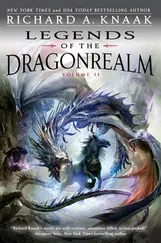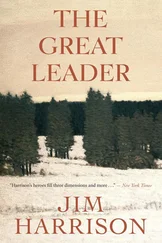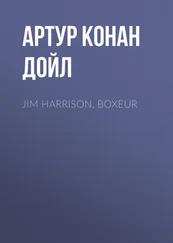Jim Harrison - Legends of the Fall
Здесь есть возможность читать онлайн «Jim Harrison - Legends of the Fall» весь текст электронной книги совершенно бесплатно (целиком полную версию без сокращений). В некоторых случаях можно слушать аудио, скачать через торрент в формате fb2 и присутствует краткое содержание. Жанр: Классическая проза, на английском языке. Описание произведения, (предисловие) а так же отзывы посетителей доступны на портале библиотеки ЛибКат.
- Название:Legends of the Fall
- Автор:
- Жанр:
- Год:неизвестен
- ISBN:нет данных
- Рейтинг книги:5 / 5. Голосов: 1
-
Избранное:Добавить в избранное
- Отзывы:
-
Ваша оценка:
- 100
- 1
- 2
- 3
- 4
- 5
Legends of the Fall: краткое содержание, описание и аннотация
Предлагаем к чтению аннотацию, описание, краткое содержание или предисловие (зависит от того, что написал сам автор книги «Legends of the Fall»). Если вы не нашли необходимую информацию о книге — напишите в комментариях, мы постараемся отыскать её.
Legends of the Fall — читать онлайн бесплатно полную книгу (весь текст) целиком
Ниже представлен текст книги, разбитый по страницам. Система сохранения места последней прочитанной страницы, позволяет с удобством читать онлайн бесплатно книгу «Legends of the Fall», без необходимости каждый раз заново искать на чём Вы остановились. Поставьте закладку, и сможете в любой момент перейти на страницу, на которой закончили чтение.
Интервал:
Закладка:
On the bottom of the trunk wrapped in antelope hide Ludlow found with surprise his own book printed in 1875 by the Government Printing Office with "my father wrote this book" in a childish scrawl inside the cover.
He stood abruptly with the lantern teetering dangerously in his hand. He had not opened the book in three decades mostly out of grief that his recommendations on the Sioux had been not taken, even scorned, after which he resigned his commission and left for Vera Cruz. He noted that Tristan had underlined and notated the pages and was curious about what so unlearned and obdurate a lad would make of what he considered a technical work. He took the book back to his room and poured a glass from a demijohn of Canadian whiskey kept under the bed for insomnia.
The title itself was bland if one neglected certain historical ironies: "Report of a Reconnaissance of the Black Hills of Dakota, made in the Summer of 1874 by William Ludlow, Captain of Engineers, Bvt. Lieut. Colonel U.S. Army, Chief Engineer Department of Dakota." As a scientist, or what passed for one at the time, he had been attached to the Seventh Cavalry under the command of an officer of his own rank, Lieut. Colonel George Armstrong Custer. Ludlow with his Cornish reticence loathed Custer and kept the company of his scientific group which included George Bird Grinnell of Yale College, a boon companion. When Custer became especially worried or angry he would mimic Ludlow's English accent, an inexcusable frivolity in a fellow officer. Ludlow privately celebrated when he heard of Custer's demise at Little Bighorn three years later in '77. His own recommendations in the conclusion of his report had been terse and direct. After enumerating the obvious advantages of the region, including the protection it afforded against the torrid heat and arctic storms of the neighboring prairies, Ludlow advised:
To this, however, the final solution of the Indian question is an indispensable preliminary. The region is cherished by the owners as hunting grounds and asylum. The more farsighted, anticipating the time when hunting the buffalo, which is now the main subsistence of the wild tribes, will no longer suffice to that end, have looked forward to settling in and about the Black Hills, as their future permanent home, and there awaiting the gradual extinction which is their fate . . . The Indians have no country farther west to which they can migrate.
He sipped deeply from his whiskey, more interested in Tristan's squiggles than the horrors and chicanery of the government which had made him a near recluse. He remembered well the plague of grasshoppers Tristan had found interesting:
I counted twenty-five one morning on what I judged to be an average square foot of ground. A brief calculation at that rate over a million to the acre . . . exceedingly rapacious, their capacity for destruction to living vegetation may be imagined. Their powers of sustained flight, too, are wonderful. . . they appear able to keep on the wing of a whole day, always moving with the wind, and filling the air to a vast height . . . the wings reflecting the light make them appear like tufts of cotton floating lazily in the wind . . . in descending through the slanting rays of the sun, they resemble a fall of huge snowflakes.
Ludlow remembered Custer making an erratic speech to the troops with his long blond locks punctuated with clinging grasshoppers. He read on, fixing only on the portions Tristan had underlined, including a passage on a blood-red moon that fired the beige landscape, to which Tristan had added "I seen this phenom. once with Stab who would not talk at campfire." The most haunting paragraph, though, was a description of buffalo skulls which Ludlow recognized foresaw One Stab's Ghost Dance superstitions and Tristan's boyish passion, "A man who shoots a buffalo and not eat the entire body and make a tent or bed of the skin should himself be shot, including the bone marrow which Stab says restores all health to the human body." Ludlow recalled the skulls and the light on the feathers of a peregrine falcon that had flown under his horse in pursuit of a doomed passenger pigeon: "It is but a few years since the country through which we passed was the favorite feeding ground of the buffalo, and their white skulls dot the prairie in all directions. Sometimes these are collected by the Indians, and arranged on the ground in fantastic patterns. In one of these collections which I noticed, the skulls had been painted red and blue in stripes and circles, and were arranged in five parallel rows of twelve each, all the skulls facing the East."
He finished his drink and dozed, not extinguishing the lamp because he was afraid the dream would return with its fatal questions, the wildly colored and operatic doom. Ludlow was not fool enough to try to order a life already lived, but he was rawly conscious that his secondary life lived through his sons had been mismanaged, not so much with Alfred and Samuel who merely were what they were, but with Tristan. Ludlow would entertain, at least temporarily, any scientific notion touched by the bizarre and there was an idea current that character often skipped a generation. Ludlow's own father had been a schooner captain, in fact at eighty-four still was, of unremitting fierceness and charm whom they tended to see in off years while growing up. His own tamer wanderings had been engendered by his father's tales of seeing giant squid fighting in the moonlight in the Humboldt swells off Peru, and how a man is never the same after rounding the Horn in a seventy-knot gale. One year Ludlow's Christmas present would be a shrunken head from Java and the next a small gold Buddha from Siam and a constant flow of mineral specimens came from throughout the world. So perhaps Tristan in a genetic lapse had become his own father and would like Cain never take an order from anyone but would build his own fate with gestures so personal that no one in the family ever knew what was on his seemingly thankless mind. At fourteen Tristan had quit school and trapped enough lynx to buy anything but had the pelts made into a coat and sent off to Boston to his astounded mother. Then he borrowed Ludlow's Purdey shotgun and disappeared, arriving back at the ranch three months later with a sack of money he won at competitive trap and skeet shoots at sporting clubs. That money had gone to buy One Stab a new saddle and rifle, Samuel a microscope, and Alfred a trip to San Francisco. The whole family was sheltered with perhaps too much money, but Tristan had his own golden touch. The sheriff in Helena had written that Tristan had been seen in the company of prostitutes at age fifteen and his mother had had a nervous fit and Ludlow had given an obligatory lecture that degenerated into his curiosity over whether the whores had been attractive. Ludlow's own bimonthly trips to Helena always included a few nights spent with a schoolteacher he furtively had courted for a decade. To his old cronies at the Cattleman's Club he liked to quote Teddy Roosevelt's "I like to drink the wine of life with brandy in it" and felt foolish afterward, considering as he did all politicians to be knaves. But now Tristan was beyond his sphere of influence and he knew that there was small chance of hearing from him, just as they had never heard from his own father. A few years back his father had gone aground in the Orkneys and Ludlow had arranged the purchase of another ship to which he got small thanks, only a note: "Dear Son. I trust your family is well. Send the boys over for seasoning. Goddamn your money. You'll get back every cent." And the small amounts arrived periodically at his bank in Helena from places as varied as Cyprus and Dakar. As his eyes dimmed with sleep he knew he would have to write Susannah, Tristan's betrothed, to get any news. She was a frail, lovely girl of surpassing intelligence.
Читать дальшеИнтервал:
Закладка:
Похожие книги на «Legends of the Fall»
Представляем Вашему вниманию похожие книги на «Legends of the Fall» списком для выбора. Мы отобрали схожую по названию и смыслу литературу в надежде предоставить читателям больше вариантов отыскать новые, интересные, ещё непрочитанные произведения.
Обсуждение, отзывы о книге «Legends of the Fall» и просто собственные мнения читателей. Оставьте ваши комментарии, напишите, что Вы думаете о произведении, его смысле или главных героях. Укажите что конкретно понравилось, а что нет, и почему Вы так считаете.











